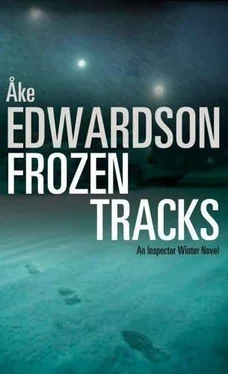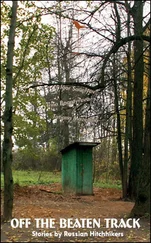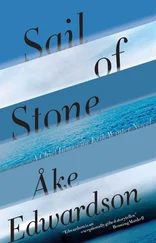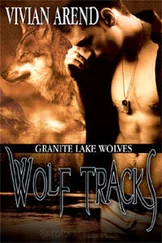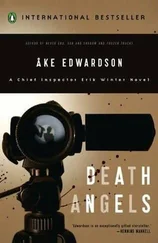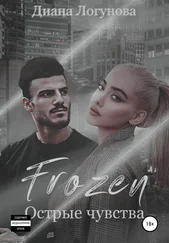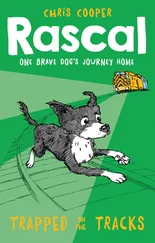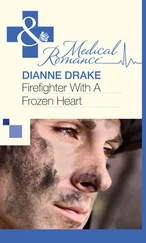Simon looked at Winter.
“Mine was called Willy,” said Winter again, looking at Simon’s friend.
“Billy,” said Simon.
That was the first word Winter had heard Simon utter.
“Hello, Billy,” said Winter.
Simon held Billy out with his uninjured arm.
“I’m a policeman,” said Winter to both his interviewees, and then he looked at Simon: “My job is to find out about things. Things that have happened.” He slowly adjusted his position on the floor. “I want to ask you about that.”
Winter knew how important it was to start by placing the interview in a frame. He needed to de-dramatize the whole thing while still being clear and natural, and to make the boy feel secure. He must use simple words, short sentences, try to speak like Simon did. He must approach the center in ever-decreasing circles. Perhaps he would never get to the very center. Or perhaps he would get there amazingly quickly.
“I want to have a little talk with you,” Winter said.
Simon looked at his mom.
“You don’t have to answer, Simon.”
He moved again. He was getting stiff from sitting on the floor.
“Erik’s going to talk to you in the guest room,” said Barbara Waggoner.
Winter nodded.
“Why?” asked Simon.
“I have a camera there. It will film us,” said Winter.
“A camera?”
“It will film us,” said Winter. “When I press a button.”
“We have a video camera too,” said Simon, looking at his mother.
“We lent it to Grandma,” said Barbara Waggoner. “You remember when we were there with it, Simon, don’t you?”
The boy nodded.
“Do you want to see my camera?” Winter asked.
The boy seemed to hesitate, then he nodded.
Winter stood up and led the way into the guest room. That was important. Simon came in with his mother. Normally relatives were not allowed to sit in on interviews, but this wasn’t normal. Winter knew that Simon wouldn’t say a word if he couldn’t see his mother.
“It’s not very big,” said Simon.
“I’ll show you,” said Winter, and nodded to Mrs. Waggoner, who lifted Simon up while Winter sat on the chair Simon would be sitting on. Simon looked into the camera.
“Can you see me?” Winter asked.
Simon didn’t answer.
“Can you see when I move my hand?” asked Winter.
“Yes,” said Simon.
***
They sat down where they were supposed to sit. The camera was rolling. Winter started his journey toward the center in ever-decreasing circles. He had to start with neutral subjects: That would give him an indication of how well Simon spoke, what he could talk about, his linguistic ability, imagination, behavior patterns. His ability to pin down time in relation to events.
“Have you made a snowman, Simon?”
Simon nodded.
“When did you make it?”
The boy didn’t answer.
“Where’s the snowman now?”
“Out there,” said Simon, pointing at the window.
“On the lawn out there?”
“It’s broken,” said Simon, gesturing with his uninjured hand.
Winter nodded.
“It’s melted,” said Simon.
“I saw the nose when I arrived,” said Winter.
“I fixed the nose,” said Simon.
Winter nodded again.
“Have you made a snowman at the nursery school, Simon?” he asked.
The boy nodded.
“Have you made lots?”
“There hasn’t been snow.”
“Do you play indoors then?”
Simon didn’t answer. He was still holding Billy, the teddy bear, but not so tightly now. He didn’t look as often at the camera, nor at his mother.
For the first few minutes Winter had wondered if it was a mistake to allow her to be in the room, but he didn’t think so now.
“Do you play indoors when it isn’t snowing, Simon?”
“No. Play outside.”
“What games do you play?”
The boy seemed to be thinking about what to say. Winter was trying to make him start saying more. Perhaps it was too soon.
“Do you play hide-and-seek?”
“Yes.”
“Do you play tag?”
Simon didn’t answer. Perhaps he didn’t know what tag was.
“Do you chase each other?”
“Yes.”
“Do you play on the swings?”
“Yes. And the slide.”
“Do you like the slide?”
“Yes. And the train.”
“Do you have a train at the nursery school?”
Simon didn’t answer. Winter thought. Suddenly they were at the playground where Simon had disappeared, next to the big park. A regular outing for the nursery school. There was a wooden train, as close to life-size as it could be for children. Engine and coaches, on the edge of the big playground that was always full of children.
Suddenly they were there, he and Simon. Should he take them back to the secure place where they had been before, back home, and to the nursery school, continue the circular movement? Or should they stay where they were and get closer to the boy’s trauma, continue the inward journey into the darkness? Winter knew that if he moved forward too quickly he might not be able to go back to a position where the boy would say what actually happened. They would revert to silence, and they wouldn’t find anything out.
“Did you drive the train?”
“Yes.”
“Where did you drive the train, Simon?”
“At the playground.”
“Was that an outing from the nursery school?”
Simon nodded.
“Driven lots of times,” said Simon, shuffling on the chair.
Soon we’ll stop for juice and a bun and a coffee and a cig… no, not a cigarillo. But he felt the desire; it increased as he became more tense himself.
“Do you often drive the train?”
“Yes!”
“Are there lots of people traveling with you, Simon?”
“Arvid and Valle and Oskar and Valter and Manfred and… and…” he said, and Winter had time to think about how times change, old-fashioned names become fashionable again, old people revert to their childhood. Twenty years ago Simon could only have been describing a group of old-age pensioners clambering into a toy train.
“Did Billy travel with you as well?”
“No.”
“Where was Billy?”
Simon looked baffled. It was a difficult question.
“Was Billy at home?” Winter asked.
Simon still looked confused. What was wrong? What am I doing wrong? Winter thought.
“Was Billy at the nursery school?” he asked.
Simon looked at Billy and leaned down closer to the bear’s little face, which was turned toward the boy now, as if he no longer had the strength to listen to this conversation. Simon whispered something to Billy, but very quietly. He looked up again.
“Can Billy say where he was?” asked Winter.
“On the train,” said Simon. “Billy rode the train.”
“Billy rode while you were driving?”
Simon nodded again.
“Billy rode on the train all the time?”
Simon nodded.
“Not the car,” he said out of the blue, and leaned over Billy again, as if he wanted to hide his own face in the teddy bear’s. Winter could see that the boy had become more tense, from comfortable calm to sudden unrest.
My God, Winter thought. This is quick. I’ve gotten us to this point, but has it been too quick? But it was Simon who had said that, of his own accord.
“Didn’t ride in the car,” said Simon.
He’s starting to tell us what happened, Winter thought. But what does he mean? We know he was abducted. Wasn’t it in a car?
“Tell me about the car, Simon.”
What Winter needed to do now was let Simon tell his story at his own pace, in his own way. He hoped Simon felt sufficiently secure to start telling the tale. That was all he could ask for.
He remembered what he had read, and passed on to his colleagues:
Читать дальше
